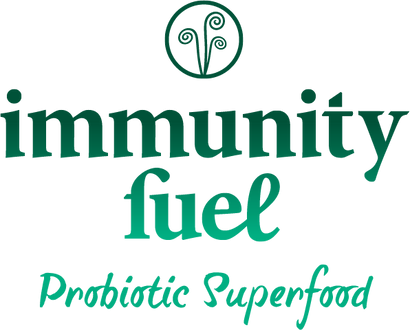ANZAC DAY 2024 - Due to the public holiday all orders placed from from 25th to 28th April will be posted on Monday 29th April.
ANZAC DAY 2024 - Due to the public holiday all orders placed from from 25th to 28th April will be posted on Monday 29th April.
Over 40 - Hormones and the Gut
February 05, 2021 2 min read

When we reach our 40's it's fair to say that things start to feel a bit different to the way they were in the past. As we age, our bodies start to change, and our hormones are no exception to that!

Problem:
In our 40s, our fluctuating sex hormones can influence peristalsis (the muscle movement that moves food through our digestive tract), either speeding it up (causing diarrhoea and abdominal pain) or slowing it down (causing bloating, gas, and constipation).
In addition, the bacteria in our gut (microbiome) is intimately connected with our hormones. The short of the long is that when our guts are healthy (have more good bacteria than bad), our hormones get metabolised and excreted out of our body in our stool.
When our gut is unhealthy (has more bad bacteria than good), excess hormones do not get excreted. Instead, they get reactivated and recirculated, causing hormonal imbalances.
Solution:
Eating a hormone-friendly diet is the most important thing we can do to optimise our hormones, digestion, and health in general.
Replacing the good bacteria we lose each day (in a healthy person, estimated 50mls per day) with a quality probiotic with whole food nutrition, such as Immunity Fuel probiotic superfood, complements a healthy diet by ensuring we get all the nutrients out of our food.
Avoid:
Hormone-unfriendly foods such as:
- Sugar!
- Refined carbs (white flour products, white rice, white potatoes, all forms of sugar, and especially high-fructose syrups)
- All junk food (fizzy drinks, lollies, cookies, cake, chips, etc.)
- All highly processed meats and meat substitutes (cold cuts, sausage, bacon, )
- All bad fats (hydrogenated oils, trans fats, all refined vegetable oils, fried foods)
- All GMO (genetically modified) foods
- Excess caffeine (coffee, tea, chocolate, caffeinated beverages)
- Excess alcohol (beer, wine, spirits)
Include:
Gut-healing foods such as:
- Probiotic and prebiotic-rich foods
- Fermented foods (apple cider vinegar, kimchi, kombucha, plain organic kefir and yogurt, sauerkraut, pickles)
- Omega-3 fat-rich foods (wild salmon, sardines, mackerel, cod, halibut, haddock, chia seeds, flaxseeds, hempseeds, walnuts, seaweed, algae, edamame)
- Glutamine-rich foods (cabbage, meat, fish, eggs, milk, nuts, seeds, and beans)
- Whey protein (if tolerated)
- Organic bone broth
- Collagen peptides supplement
- Fibre-rich foods (antioxidant-rich fruits and veggies, beans and legumes, whole grains, artichokes)
JOIN US AND RECEIVE 10% OFF YOUR FIRST ORDER!
Plus be the first to know about our special offers and discounts!
